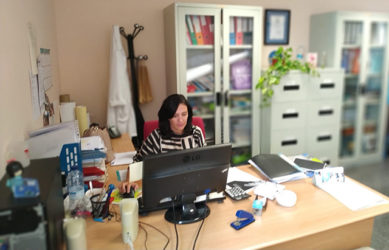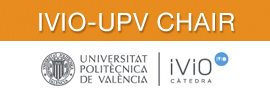 The school term has already begun, and the students in their final year are beginning to realize that they will soon be transitioning from being students whose main concern is passing their final exams, to joining the ranks of the increasingly large group of professionals entering the work force in search of a job.
The school term has already begun, and the students in their final year are beginning to realize that they will soon be transitioning from being students whose main concern is passing their final exams, to joining the ranks of the increasingly large group of professionals entering the work force in search of a job.
The research career is a professional activity that is carried out not only in universities and research centers, but also in companies, and like any other career, it requires a series of skills such as the ability to search and manage information, organization, synthesis, or the commitment to team work, among others.
After the initial “I want to go into research!”, if you’re thinking that research might be an option for you professionally, you should be aware of some tips that will be of great help:
- Curiosity. What am I passionate about? What subject interests me enough that I could spend days and days reading about it?
You may know very little about the new field that you want to get into. If this is the case, you have no choice but to look into the subject to see the different options that are available. In the Campus Gandia Science Blog, you can take a look at what we are doing. Talk to the Campus academic staff or even doctoral students who can help you. Tell them about your ideas and concerns and above all ask them everything you can think of. The professors and research staff will be happy to help you in these initial steps of your career. The final years of university are essential to establishing the first contacts and outline the beginning stage of the path in research.
But, remember, if you don’t find a subject area that you really like, you won’t have enough will to dedicate years of research and much less, dedicate your work life to it.
- The PhD. Once you’re sure that research is your thing, the best option is to study a doctoral degree. The PhD is a group process where a research group is not only enriching, but will also open many doors that will allow you to go much further than if you worked on your own.
There you will learn many transversal skills (teamwork, project planning, dealing with institutions, working with people) that can serve you for future non-academic work, for example in the RDI department of a private company.
 So, the first thing you will have to do is to find a university where you can do the PhD, like here at Campus Gandia of the UPV. You can also find information about the entire UPV here. And make sure that the chosen school has professors that specialize in the field that you want to pursue, because this will help you in your future. The PhD is a long-distance race, and although it is a very demanding process, you should never forget that the PhD is just the beginning of your career as a researcher. There are numerous public grants that will fund your job contract.
So, the first thing you will have to do is to find a university where you can do the PhD, like here at Campus Gandia of the UPV. You can also find information about the entire UPV here. And make sure that the chosen school has professors that specialize in the field that you want to pursue, because this will help you in your future. The PhD is a long-distance race, and although it is a very demanding process, you should never forget that the PhD is just the beginning of your career as a researcher. There are numerous public grants that will fund your job contract.
- Create a network of contacts. Once the PhD is finished, you have to make the leap into the job market, whether it is academic or not. I advise you to create a network of contacts in the field thar you want to get into. This network will open more doors for you than many of the existing job boards.
In addition to purely academic career opportunities or the possibility of doing a postdoc, many doctors find their first employment in private companies, enhancing other skills and experiences acquired during the doctoral years. There are also public grants that fund the employment contracts of PhDs in private companies, technology centers, business associations, among others.
A first non-academic job where you can fulfill your job objectives, are NGOs. Normally these Organizations need employees with research and program evaluation skills.
Consulting firms also value having experts in the areas they operate, so consulting is a good option to demonstrate the skills obtained from a PhD. Another option is being a researcher in a think tank or policy institute, which is a research institute which performs research and advocacy concerning topics such as social policy, political strategy, economics, military, technology, and culture.
Finally, a career opportunity for a person with a research vocation would be in the research and development department of a company, with the aim of improving technology or products or services to strengthen its market position.
Merche Lillo Sánchez, Job Placement Officer at the Campus Gandia of the Universitat Politècnica de València.











